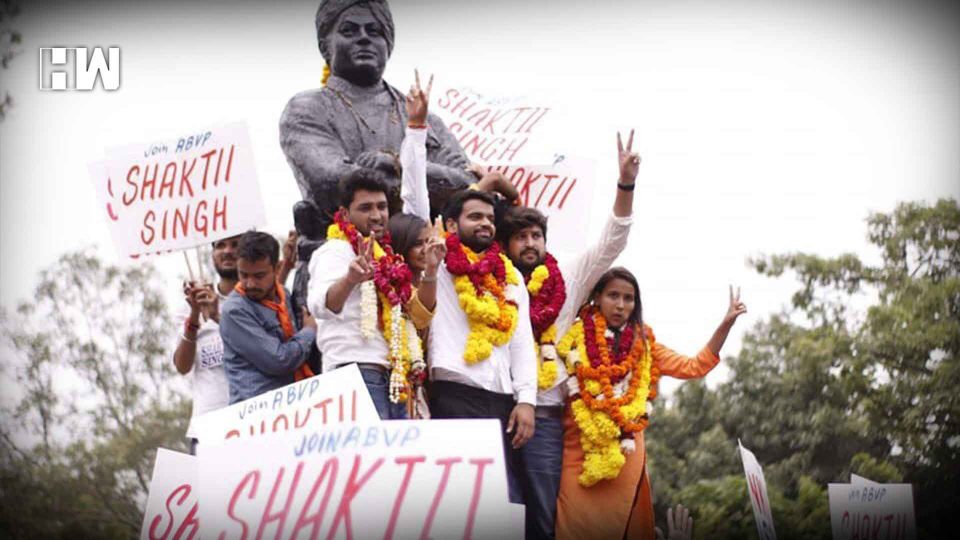It is not wrong if one may see student elections as the Launchpad for mainstream or national politics- a ticket to have a national exposure.
The recently concluded Delhi University Student Union Elections and Jawaharlal Nehru University Elections were among the topmost news last week. So much so, that the results of DUSU Elections were a top trend on the social media sites like Twitter. #DUSUElection2018 was trending all over the Twitter. For someone who has been part of Universities other than Delhi University or JNU, the amount of coverage and impetus the Student Body elections get, comes with a package of astonishment and a lot of important questions. Why in the first place, the DUSU, and JNU election get so much importance? There are total 819 odd universities in India enrolling lakhs of students. Why is it that we rarely hear about the student elections from any other university? And most importantly, do the student elections from Universities really matter in a national political arena?

India has a long history of student movements and indeed a very successful and powerful one. Right from India’s freedom movement in which youth and college-going students took part in large numbers to the most recent Anti-Corruption Movement led by Anna Hazare, the student involvement was something that was at the core of why the movements gained importance. Thus, student politics and student elections remain a point of fascination. There are even people who readily equate the outcomes of DUSU Elections and JNU elections to that of national politics and mood of the nation at large. Whether these arguments hold water or not is a different question altogether.
It is not wrong if one may see student politics as the Launchpad for mainstream or national politics- a ticket to have a national exposure. After all, a leader like Finance Minister Arun Jaitley, Delhi Congress President Ajay Maken, Delhi’s former BJP president Satish Upadhyay are among the many national and state-level politicians who began their political career from the student politics and the elections. The student elections are also an opportunity for the existing political parties to reach out to the young voters brimming with enthusiasm. If looked at it from this perspective, it is easy to understand why student elections thus become a matter of prestige for political parties and their student wings.

For now, let us take the example of DUSU elections that happened this year. The largest central university in the country has more than one lakh students. Out of which 44.5% turned up for elections. It was a clean sweep for BJP and RSS backed student wing ABVP. While ABVP won 3 seats including that of president’s, BAPSA won 1 seat. On the other hand, JNU which has been in controversy for a few years due to various reasons, saw a red storm taking the center stage.
Being the largest central university and the most controversial university in the national capital which is the center-stage for national politics, the student elections tend to reflect the national political culture at the student level. The politics at this level is heated and as much amount is splurged in these elections as in Municipal Corporation elections. The student elections in recent years have been marred by the incidents of violence, poll code violations, and expensive campaigning. Thus, the elections that are a week’s affair suddenly gain national importance.

But for those, sitting away from the politically charged Delhi environment, this treatment to student elections is alienated. In country’s economic capital Mumbai, student elections hardly make it to the news headlines, let alone the front page. The elections in Mumbai University which houses more than 5 lakh students and is affiliated to as many as 700 colleges, rarely see the kind of coverage that DU or JNU student elections get.
At a time, when student body elections have become a part and parcel of national politics, the one who stands at the losing end is a student. While the topics as OROP, Triple Talaq, Rohingya Muslims take the center stage in the presidential debate, issues that worry the students in their academic and campus lives are rarely addressed. We also have heard a lot of students complaining about the disturbance in their classes and invasion of privacy in the days of student body elections. The solution is not taking the politics out of institutes. The politics which is deeply entrenched in our system is equally necessary for education institutions to hold the authorities accountable. The need is to decide what should be the degree or level of politicisation being allowed.
For starters, we can keep student elections, an affair limited to the concerned university rather than blowing it up as a reflection of the nation’s mandate at large!
As an independent media platform, we do not take advertisements from governments and corporate houses. It is you, our readers, who have supported us on our journey to do honest and unbiased journalism. Please contribute, so that we can continue to do the same in future.

